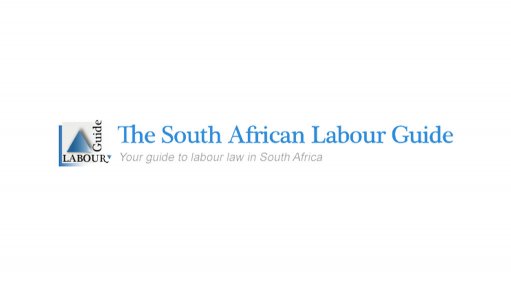
Section 23 (1) of the 1996 Constitution of the Republic of South Africa read together with sections 185 and 186(2) of the Labour Relations Act, 66 of 1995 provides that everyone has the right to fair labour practices.
A grievance may be defined as any feeling of discontent, unfairness or injustice which an employee may have in respect of his work conditions, against his manager or supervisor, including a fellow worker and which is brought to the attention of Management.
Grievances may be categorised in two forms, i.e. a grievance of right and a grievance interest.
A grievance of right occurs when an employee claims that the employer has not given him what he is entitled to (by legislation, collective agreements, conditions of service, employment contract, established practice, etc.) or an employer has not respected or has infringed a right which he has.
A grievance of interest occurs when an employee has no entitlement to a particular claim in law against the employer but feels that he is entitled to it or has been unfairly treated.
Although the Labour Relations Act contains no definition of the word “unfair”, Professor John Grogan in his book entitled “Employment Rights” second edition (Juta, 2014) at pages 114-115, adequately summed up the hallmarks of “Unfair Conduct” as follows:
- where one person or group of people is favoured over another on the basis of irrelevant criteria;
- where people are treated arbitrarily – i.e. not in accordance with established rules;
- where people are treated irrationally – i.e. on the basis of unproven or untested views and suppositions;
- where people are penalised or denied an advantage without being able to state their case.
The purpose of a grievance procedure is aimed at promoting sound labour relations in the workplace, i.e. consistency, transparency and fairness in the handling of workplace problems and complaints.
The grievance procedure is also intended to empower employees with the opportunity and procedure to be able to raise issues of dissatisfaction with the employer.
General principles to consider when handling grievances according to Bandix, 1996:350 are:
- Employees should be entitled to bring their grievance to the attention of management even if it is done in stages.
- The employee should be allowed representation by a colleague or union representative.
- Management at various levels must consider the grievance carefully and make genuine attempts to resolve the grievance.
- The grievance will not be resolved until the employee indicates such.
- Time limits should be established for each of the steps within the procedure.
- Should the grievance remain unresolved, the employee has the right to declare a dispute.
- Grievances should generally be managed by line Management, however, other staff, for example, the Human Resources Manager, may act in an advisory capacity.
In the Public Sector, the grievance process is regulated by PSCBC Resolution No. 14 of 2002 which provides as follows:
- The employer must ensure that the grievance is dealt with in a fair, impartial and unbiased manner and that the principles of natural justice are observed.
- An employee must not be victimised or prejudiced directly or indirectly as a result of lodging a grievance. See also a Court decision in Mackay v ABSA and another (2000) 21 ILJ 2054 (LC).
- A grievance must be lodged in writing with an employee designated to facilitate the grievance resolution in the department within 90 days from the date in which the employee became aware of the official act or omission which adversely affected him/her.
- An employee may be assisted by a fellow employee or a representative or official from a recognised trade union.
- The employer must deal with the grievance within 30 days unless parties mutually agree in writing to extend the timeframe.
- The designated employee must liaise with the relevant structures of authority of the department which has the requisite authority to resolve the grievance.
- The aggrieved employee must be duly informed by the designated employee about the status and progress made towards the resolution of the grievance.
- If the employer fails to respond to a grievance within the stipulated period, the employee may lodge the grievance with the Commission, PSCBC or the relevant Bargaining Council.
A grievance process should not be used as a parallel mechanism to appeal or review complaints or feeling of injustices which arise out of a disciplinary process. If the employee is unhappy about the outcome of a disciplinary process, the employee concerned may internally appeal against such outcome (short of dismissal) and if the appeal is unsuccessful then declare an Unfair Labour Practice dispute directly with the CCMA or relevant Bargaining Council.
The objectives of the grievance procedure may be summed up as follows:
- To create an opportunity for the employee to communicate with management.
- To ensure that complaints are effectively dealt with by management.
- To prevent disputes from arising in the workplace.
- To render disciplinary proceeding more acceptable since employees also have the means of objecting to management performance.
- To create awareness of employee problems or problem areas, which management needs to address.
Written by Magate Phala, who specialises in Labour Law and writes in his private capacity. For more information, kindly contact Magate Phala at magatephala@gmail.com